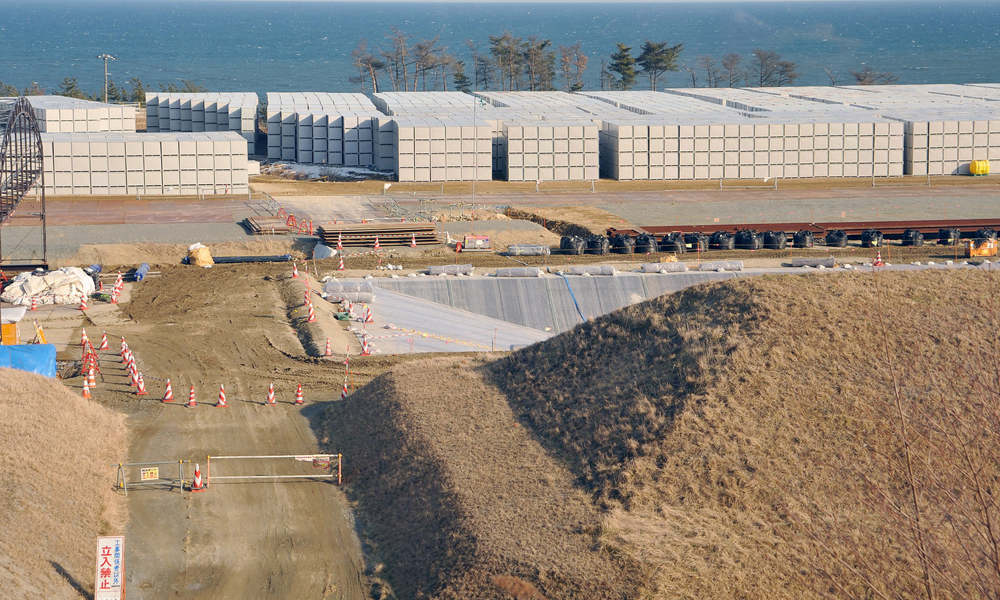
Russia Ready to Help Japan
back to contentsThe statement was made after the talks with Japan’s Prime Minister Shinzo Abe in late April. Earlier a spokesperson for the Agency for Natural Resources and Energy of Japan’s Ministry of Economy, Trade and Industry told media that Tokyo was ready to cooperate with Moscow in the recovery operations at Fukushima Daiichi. The Government of Japan is open for close collaboration with Russia in the recovery efforts at Fukushima-1, but wants to clarify some technological and legal aspects. “Cooperation on the disaster cleanup at Fukushima Daiichi was discussed in detail during the visit of Rosatom’s CEO Alexei Likhachov in April,” the spokesperson said. “We value Rosatom’s expertise very much and would like to use it. At the same time, Japan thinks it would be useful to discuss legal aspects of the bilateral cooperation. For instance, we need to be assured that the Russian spent fuel reprocessing technologies fully comply with relevant Japanese regulations. This is why we find it useful to organize a workshop in Tokyo for Russian experts to give detailed answers to the Japanese authorities and business community,” the Agency’s spokesperson said.
Nuclear cooperation between the two countries is yet at its initial stage, but has a very solid basis, he added. Russia and Japan laid the foundation for their civil nuclear cooperation by signing a framework agreement in 2009. The document provides for joint operations at Fukushima Daiichi and supplies of Russia’s nuclear fuel to Japanese nuclear power plants.
In early April, Rosatom CEO Alexei Likhachov visited Japan to have talks with Hiroshige Seko, Japan’s Minister of Economy, Trade and Industry, and Hirokazu Matsuno, Minister of Education, Culture, Sports, Science and Technology. The talks were a logical continuation of the memorandum on civil nuclear cooperation signed last December and focused on the possibility of using Russian radioactive waste disposal and nuclear decommissioning solutions.
The Russian delegation inspected the site of Fukushima 1 to see the progress of cleanup operations. “Our Japanese partners are making noticeable headway in their recovery efforts. Russia has offered technologies that are both feasible and cost efficient,” Mr. Likhachov noted. According to him, cleanup operations are the best example of how the two countries work together in the nuclear area. “Solutions we offer are both effective and efficient and can save a part of those tens of billions of US dollars to be spent on disaster cleanup. The first project is already on its way as we won a contract for the development of a neutron detector to be used for radiological assessment of the reactor core. I believe that this project will be a small breakthrough that will open doors for more contracts,” Alexei Likhachov said. Rosatom has repeatedly voiced its readiness to help Japan recover from the effects of the Fukushima accident.
In the autumn of 2014, the Japanese government selected Rosatom’s subsidiaries RosRAO and Khlopin Radium Institute as partners for the pilot project to test a new technology for removing tritium from liquid radioactive waste accumulated after the accident at Fukushima 1, where tritium content is hundred times higher than the maximum permitted level. Technologies in current use at the station are capable of cleaning the waste from cesium and strontium isotopes, but not from tritium. Russian nuclear engineers created a pilot cleanup plant that was successfully tested earlier this year at one of RosRAO’s test sites. In late 2015, German-based Nukem Technologies (controlled by Rosatom’s subsidiary AtomStroyExport) and Japan’s Mitsubishi Heavy Industries concluded a contract to carry out four feasibility studies for the recovery projects to be run at Fukushima.




